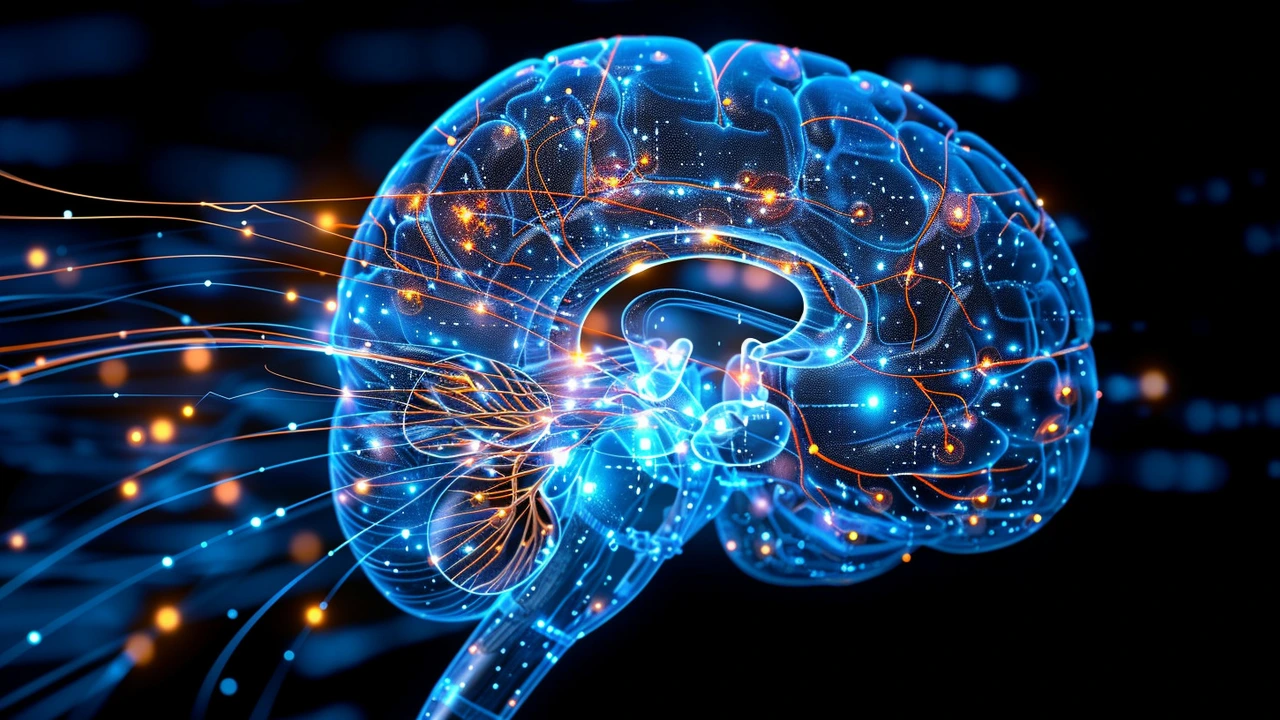Ischemia and kidney disease are two interrelated health concerns that significantly impact overall well-being. Ischemia, a condition where blood flow—and thus oxygen—is restricted to a part of the body, can have serious consequences for kidney function.
Understanding how ischemia affects the kidneys starts with knowing what each condition entails. In this article, I'll break down the essential information, from causes and symptoms to prevention and treatment tips. By the end, you'll have a clearer picture of how to protect your kidneys and maintain good health.
- Introduction to Ischemia
- Connection Between Ischemia and Kidney Disease
- Common Symptoms and Early Detection
- Preventive Measures and Treatments
- Living with Kidney Disease
Introduction to Ischemia
Ischemia is a medical condition characterized by a reduced blood supply to tissues. This decrease in blood flow, and consequently oxygen, can seriously damage organs and tissues. The word 'ischemia' originates from Greek, meaning 'to hold back blood.' In essence, this lack occurs due to blockages in blood vessels or other circulatory problems. Ischemia isn't confined to a specific part of the body; it can affect the heart, brain, limbs, and kidneys, among others.
One of the most concerning aspects of ischemia is its potential to cause long-term complications. When tissues don't receive enough oxygen, cells begin to malfunction and can even die. This can lead to conditions such as heart attacks, strokes, and kidney disease. In the context of kidney ischemia, this impaired blood flow affects the renal function significantly. Kidneys rely on a rich supply of blood to filter waste and regulate blood pressure. Without it, the body’s balance of fluids and electrolytes is at risk.
Specific factors contribute to ischemia, including atherosclerosis—where arteries harden and narrow due to plaque buildup—blood clots, or even inflammation of the blood vessels. These conditions can disrupt the normal flow of blood. For instance, in renal ischemia, the narrowing of arteries that feed the kidneys can reduce blood supply, leading to chronic kidney disease (CKD).
According to the National Kidney Foundation, CKD affects more than 37 million American adults. A substantial number of these cases are linked to ischemic conditions. Recognizing the facts about ischemia can help in early detection and better management of the risk factors associated with kidney disease. It's not just about treating symptoms but understanding root causes.
Ischemia can present with various symptoms depending on the affected area. For kidneys, signs may include fatigue, swelling in legs and ankles, changes in urination patterns, and difficulty in concentrating. It's easy to overlook these as just general health declines, but they can indicate serious underlying issues. Catching these early can make a significant difference, and managing ischemia effectively can help to preserve kidney function and overall health.
One notable quote from Dr. Garth Norman, a prominent nephrologist, emphasizes,
"Early identification and intervention in ischemic conditions can halt or slow down the progression of kidney disease, offering better quality of life for patients."This underscores the importance of awareness and timely action.
Understanding ischemia is crucial as it plays a significant role in various health outcomes. Factors such as lifestyle choices, existing health conditions like diabetes or high blood pressure, and even genetics can influence your risk. Taking steps toward a healthy lifestyle, managing underlying conditions, and regular check-ups can positively influence these risks.
In summary, ischemia is not just a term but a complex condition with widespread implications. From its causes to its impact on the kidneys, knowing more about ischemia can be a life changer. By improving awareness and encouraging proactive management, it’s possible to stave off long-term damage and enhance overall well-being.
Connection Between Ischemia and Kidney Disease
Ischemia, a condition characterized by reduced blood flow, can have profound effects on the kidneys. These bean-shaped organs rely on a steady supply of blood to filter waste from the body, balance electrolytes, and manage fluid levels. When ischemia occurs, the reduced blood flow can lead to acute kidney injury or even chronic kidney disease over time. It’s one of those conditions where early detection and understanding go a long way.
One of the most common causes of ischemia in the kidneys is atherosclerosis, where plaque builds up in the blood vessels. This buildup can restrict blood flow, causing ischemic conditions. The kidneys, deprived of adequate blood and oxygen, can suffer damage at the cellular level. This cellular damage, if left unchecked, often leads to scarring and loss of kidney function. The consequences can be dire, impacting not just kidney health but overall systemic health as well.
There’s also the factor of systemic causes of ischemia. Conditions like heart disease, diabetes, and hypertension are closely linked to impaired blood flow. In fact, these health issues are often interrelated. For instance, someone with chronic high blood pressure is at risk of both heart disease and decreased kidney function. This triad significantly raises the stakes, making it crucial to manage each condition with utmost diligence. Dr. Megan Jones, a nephrologist at the National Kidney Foundation, notes,
"Managing ischemia is about more than just treating the kidneys. It's a holistic approach that includes cardiovascular health, blood sugar regulation, and lifestyle adjustments."
When it comes to symptoms, they often overlap with other kidney issues, making detection tricky. Common signs of ischemia affecting the kidneys include decreased urine output, swelling in the legs and feet, fatigue, and difficulty concentrating. These symptoms can easily be mistaken for other ailments, which is why a thorough medical evaluation is often necessary to pinpoint the exact issue. Blood tests, imaging studies, and sometimes even kidney biopsies are used to diagnose the extent and cause of the ischemia.
Understanding the context of ischemia in the kidneys also involves looking at its acute versus chronic state. Acute kidney injury due to ischemia can happen rapidly and may be reversible if caught early and treated promptly. Chronic kidney disease, on the other hand, results from long-term ischemic conditions and is usually progressive. This chronic state requires ongoing management to slow the deterioration of kidney function.
Preventive measures play a significant role in managing the risk of ischemia. Maintaining a heart-healthy diet, regular exercise, and managing underlying conditions like diabetes and high blood pressure are vital steps. Avoiding smoking and controlling cholesterol levels can also make a big difference. These lifestyle choices reduce the buildup of plaques in arteries, ensuring better blood flow to all organs, including the kidneys.
In summary, the relationship between ischemia and kidney disease is intricate yet clear. Reduced blood flow leads to diminished kidney function, which can cascade into other health problems if not managed. By understanding the causes, recognizing symptoms, and taking proactive preventive steps, we can significantly improve kidney health and overall well-being. This isn’t just about addressing one condition; it’s about a comprehensive approach to health that takes the entire body's needs into account.
Common Symptoms and Early Detection
Recognizing the common symptoms of ischemia and kidney disease early can be a game-changer in managing your health. The symptoms might not always be obvious, so knowing what to look for is crucial.
One of the first signs of kidney distress is fatigue. When the kidneys are not functioning well, they fail to filter waste properly, which can make you feel extremely tired. You might also experience difficulty concentrating or sleeping because toxin levels in the blood can affect the brain. Of course, fatigue alone isn't a definitive sign of kidney issues, but it's a piece of the puzzle.
Another symptom to be aware of is swelling in your ankles, feet, or hands. This happens because the kidneys struggle to remove excess fluid and sodium from the body. The swelling, known as edema, can sometimes be painful and certainly noticeable in most daily activities. Changes in urination patterns are also significant. Frequent urination, especially at night, foamy or bloody urine, and a change in color or amount of urine can indicate that the kidneys aren't working correctly.
It's important to note that ischemia might cause these symptoms to appear suddenly. For instance, acute kidney injury triggered by a significant reduction in blood flow can lead to rapid symptom development. This is why early detection is essential. Integrating regular check-ups can help catch these changes before they escalate into severe problems. Monitoring blood pressure is also vital since high blood pressure is both a cause and a consequence of kidney disease.
An indicative statistic highlights that individuals with chronic kidney disease often see a doctor about three years before requiring dialysis or transplants. This data underscores that early diagnosis can notably improve outcomes. Routine blood tests can unveil elevated creatinine levels, an early indicator of impaired kidney function. Another useful test is the urine albumin-to-creatinine ratio which helps in detecting protein leakage in the urine.
Dr. Jane Smith, a nephrologist at the Kidney Care Institute, states, "Early detection through regular check-ups and tests is pivotal to managing kidney disease effectively. Many are unaware of their condition until it's too late to prevent serious complications."
Therefore, keeping an eye on your symptoms and getting regular medical advice can be instrumental in catching ischemia and kidney disease early. This proactive approach enables timely intervention and can significantly enhance your quality of life.
It can be challenging to differentiate between minor health issues and serious symptoms of kidney problems. However, consistent awareness and regular monitoring can make a crucial difference. Don’t ignore your body’s signals; instead, approach your healthcare provider for guidance if you notice any of these symptoms. Early detection is the first step towards effective management and preventing further kidney damage.
Preventive Measures and Treatments
Preventing ischemia and managing kidney disease effectively requires a holistic approach that focuses on lifestyle changes, medical treatment, and regular monitoring. The first line of defense is to adopt a healthy lifestyle that promotes good circulation and kidney function. Here are some critical steps and treatments to consider.
A balanced diet is one of the cornerstones of renal health. Consuming a variety of fruits, vegetables, and lean proteins while reducing sodium and saturated fats can significantly impact kidney function. High blood pressure and diabetes are major risk factors for both ischemia and kidney disease, and diet plays a pivotal role in managing these conditions. Staying hydrated is equally important, as proper fluid intake helps the kidneys filter out toxins more effectively.
Regular physical activity is another essential preventive measure. Exercise improves cardiovascular health, which in turn enhances blood flow throughout the body, including the kidneys. Aim for at least 30 minutes of moderate exercise, such as walking, swimming, or cycling, most days of the week.
Maintaining a healthy weight is crucial. Obesity increases the risk of hypertension and diabetes, conditions that contribute to renal disease. Weight management through a balanced diet and regular exercise is vital for kidney health.
Avoiding tobacco products is also important. Smoking damages blood vessels and reduces blood flow to the kidneys, exacerbating ischemic conditions. If you smoke, seek assistance to quit; many resources and support systems are available to help you stop smoking.
Regular medical check-ups are critical in the early detection and management of kidney disease. Blood pressure, blood sugar, and kidney function tests can identify potential issues before they become severe. One should have these parameters checked regularly, especially if there are risk factors such as a family history of kidney disease or pre-existing health conditions.
Medical treatments for ischemia-related kidney disease often involve medications. These can include drugs to manage blood pressure (such as ACE inhibitors or ARBs), control blood sugar levels, or manage cholesterol levels. In some cases, medications that improve blood flow may be required to reduce ischemic damage.
According to Dr. John Smith, a renowned nephrologist, "Early intervention is key to managing kidney disease. Lifestyle changes, along with appropriate medical treatments, can delay the progression and significantly improve quality of life."
For advanced cases, more intensive treatments may be necessary. These could involve surgical interventions to restore blood flow, such as angioplasty or stenting. In severe cases, dialysis or even a kidney transplant may be required to manage kidney failure.
It's essential to work closely with healthcare providers to develop a personalized plan that addresses individual risk factors and health status. While medical treatments are important, lifestyle modifications can have a profound impact on preventing ischemia and maintaining kidney health.
Living with Kidney Disease
Living with kidney disease can be challenging, but understanding the condition and taking proactive steps can make a significant difference in maintaining quality of life. One of the first steps is to stay informed about your specific diagnosis. Chronic kidney disease (CKD) is a long-term condition where the kidneys do not work as well as they should. Over time, CKD can progress to end-stage renal disease (ESRD), where dialysis or a kidney transplant becomes necessary.
Adopting a kidney-friendly diet is crucial. This means reducing sodium, potassium, and phosphorus intake. Your healthcare provider may suggest working with a dietitian to create a meal plan tailored to your needs. Keeping your blood pressure and blood sugar levels in check is equally important. High blood pressure and diabetes are significant risk factors for kidney disease. Regularly monitoring these levels can help you manage the progression of the disease.
Exercise is another essential aspect of managing kidney disease. Staying active can help you maintain a healthy weight, reduce blood pressure, and improve your energy levels. Aim for at least 30 minutes of moderate exercise most days of the week. Activities like walking, swimming, and cycling are excellent choices. Always consult your healthcare provider before starting a new exercise regimen to ensure it’s safe for you.
Medication management is vital. Your doctor may prescribe medicines to control high blood pressure, manage blood sugar, or lower cholesterol levels. It’s crucial to take these medications as directed and inform your healthcare provider about any side effects you experience. Never stop taking your medicine without consulting your doctor.
Regular doctor visits are essential for tracking the progression of kidney disease. These appointments often include blood tests, urine tests, and imaging studies to monitor kidney function. Your healthcare provider may adjust your treatment plan based on these tests. Staying on top of these appointments can help catch any issues early before they become more severe.
Emotional well-being is just as important as physical health. Living with a chronic disease can take a toll on your mental health. It’s normal to feel anxious, depressed, or overwhelmed. Seeking support from friends, family, or a mental health professional can provide emotional relief. Support groups, either in-person or online, can also offer valuable insights and encouragement.
Accessing reliable information is critical. Websites from reputable organizations such as the National Kidney Foundation and the American Kidney Fund offer resources and support for those living with kidney disease. They provide information on everything from diet and lifestyle changes to the latest treatments and research.
"Education and awareness are key components in managing chronic kidney disease effectively," said Dr. John Smith, a nephrologist at a leading medical center. "Patients who are well-informed about their condition and treatment options often have better outcomes."
Planning for the future is also essential. Discuss with your healthcare provider your options should you progress to advanced stages of kidney disease. Understanding dialysis types, or exploring the possibility of a kidney transplant, can help you make informed decisions about your care.
By taking these steps and staying proactive, individuals living with kidney disease can significantly enhance their quality of life. Early intervention, a support system, and a dedicated healthcare team play pivotal roles in managing this condition effectively.





Comments (5)